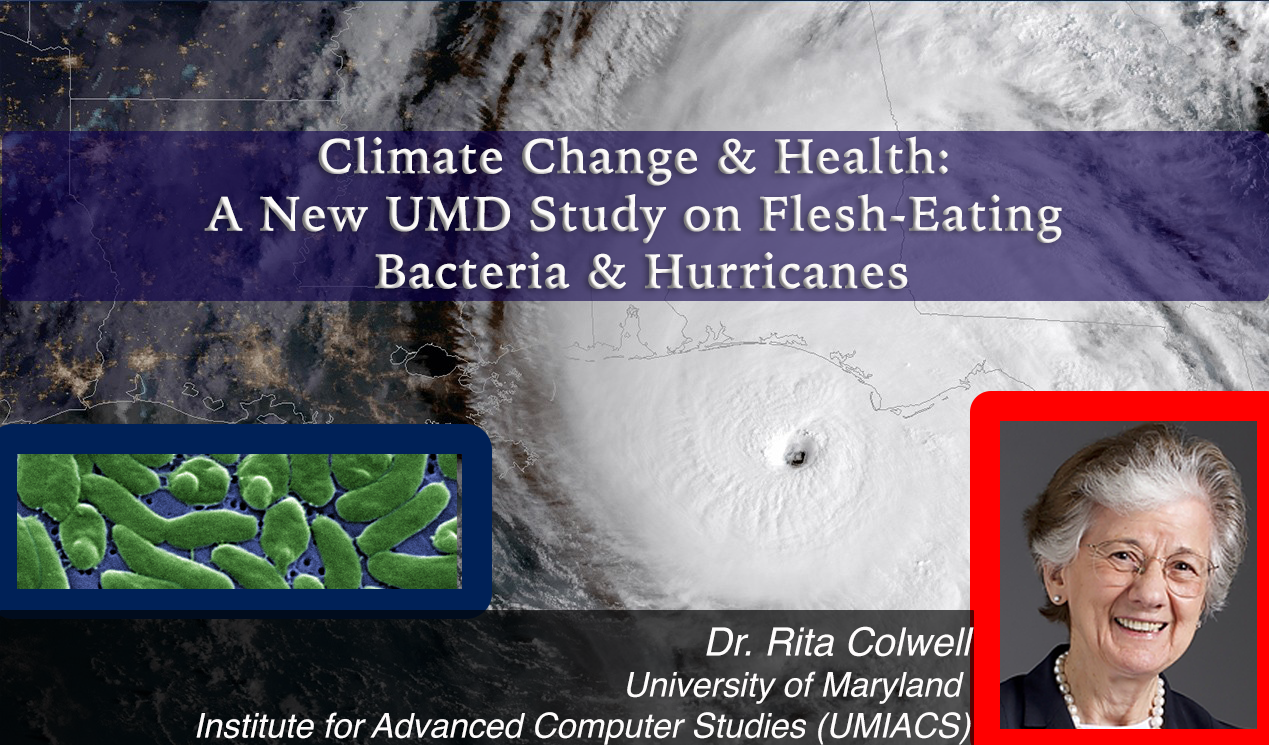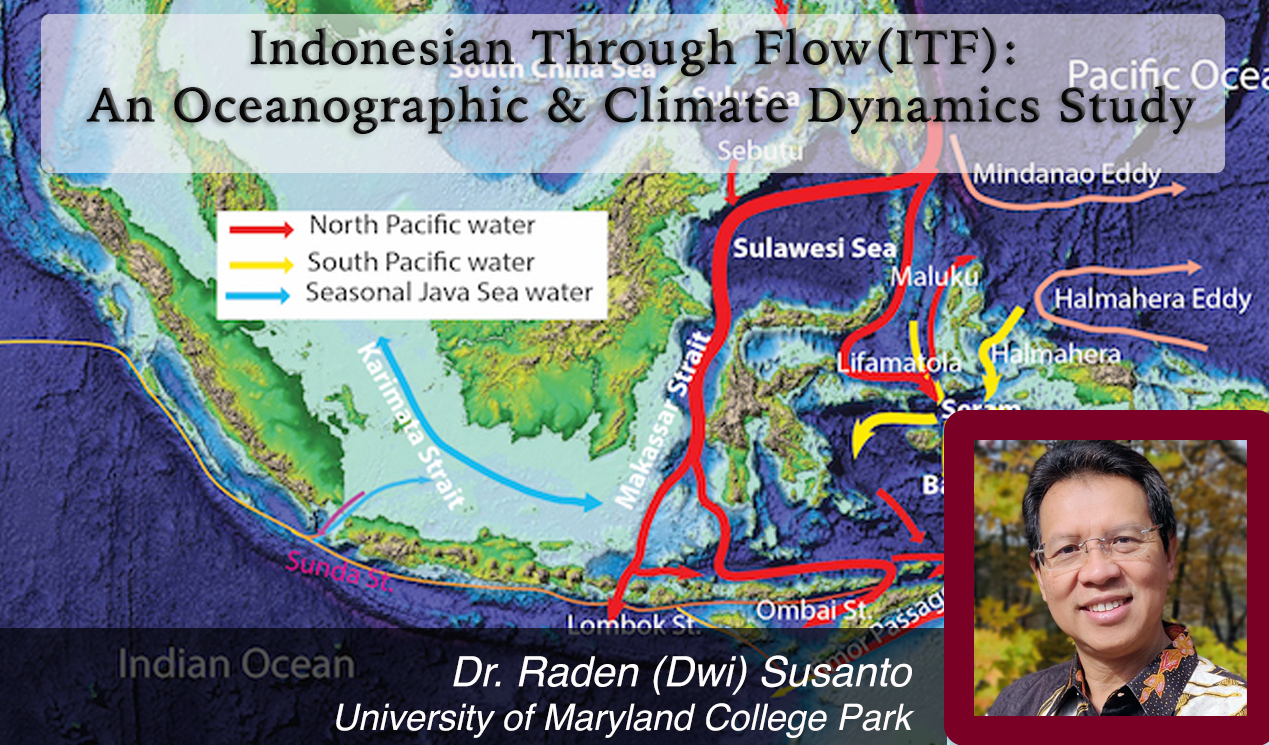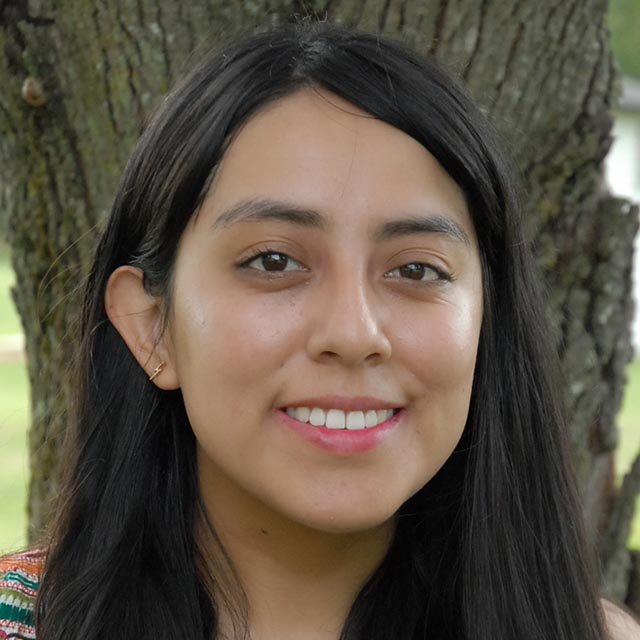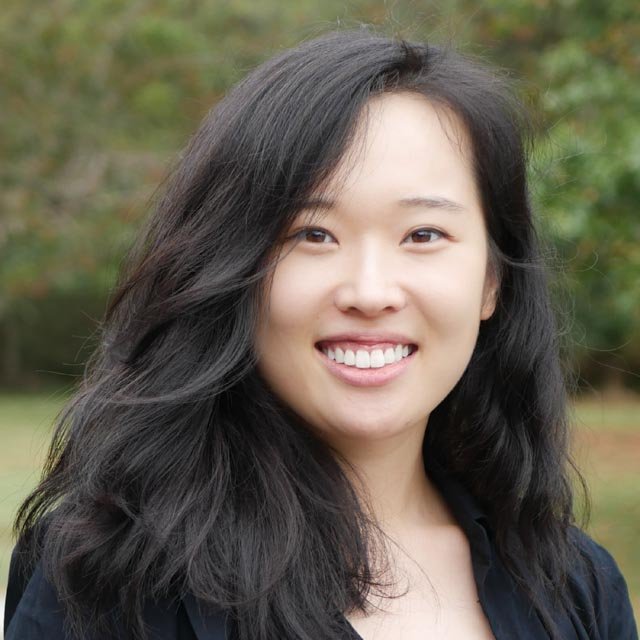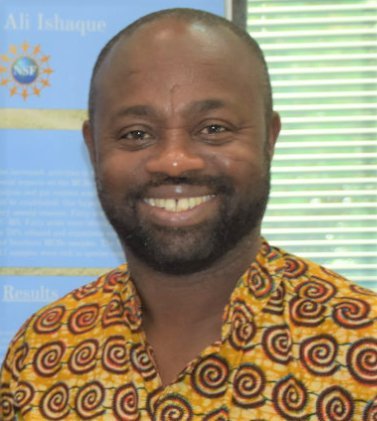CONGRATULATIONS TO OUR 2024 KNAUSS Fellowship Awardees!
Paulina Huanca-Valenzuela Photo Courtesy: UMCES/HPL
Carol Kim Photo Courtesy: NOAA/MSG
Jessica Diaz ( M.S., ‘23) Photo Courtesy: NOAA/MSG
The MEES Graduate Program would like to warmly congratulate our current graduate students and recent alum who were among the awardees of the 2024 John A. Knauss Marine Policy Fellowship program: Paulina Huanca-Valenzuela (Ph.D.) advisor: Dr. Clara Fuchsman (UMCES), Carol Kim (Ph.D) advisor: Dr. Sairah Malkin, co advisor: Dr. Clara Fuchsman (UMCES), and recent Spring 2023 alum Jessica Diaz (M.S., ‘23) who was advised by Dr. Mercedes Burns (UMBC). In the announcement by NOAA, our exceptional MEES alum and current graduate students were among the 85 early-career professionals selected for the Knauss fellowship by the National Oceanic and Atmospheric Administration’s (NOAA) National Sea Grant College Program (Sea Grant). They will join over 1,600 individuals who have participated in the program since its inception in 1979 and will be placed in federal government offices throughout Washington, D.C. The Knauss Fellowship is a one year paid opportunity for current and recent graduates to apply their knowledge and experiences to lasting careers in the sciences, policy and public administration. The MEES Graduate Program is proud of all our current students and alum; this is a well earned recognition of all your hard work! For more information, please click here.
ALUMNI CORNER
MEES RESEARCH CENTER
Meghna Mathews Photo Courtesy: UMCES/HPL
Meghna Mathews (E&S, ‘23, M.S.) is a second year MEES Master’s student at the University of Maryland Center for Environmental Science. Advised by Dr. Xin Zhang, Meghna’s research focuses on food insecurity in Baltimore, Maryland and how urban agriculture can be used as a method to address it.
Taylor Gedeon (‘21, M.S.)
Taylor Gedeon (‘21, E&S) graduated with a Master’s degree in MEES in Spring 2021 from the University of Maryland College Park. Advised by Dr. L. Jen Shaffer, Taylor’s research focused on exploring the applicability of a socio-ecological approach in the management of native versus nonnative species as well as the actions that put humans into close contact with wildlife, and the behavior patterns of animals.
climate change & Health:
A new UMD study on flesh-eating bacteria & hurricanes
dr. Rita Colwell (UMIACS)
Dr. Rita Colwell Photo Courtesy: UMIACS
October 16, 2023 - Dr. Rita Colwell is a Distinguished University Professor in the University of Maryland Institute for Advanced Computer Studies (UMIACS). An internationally recognized expert on cholera and other infectious diseases, Colwell was the first woman to serve as director of NSF and was the first director in more than 25 years with training as a biologist. Dr. Colwell, a long-time MEES Faculty member, along with a team of researchers from the University of Maryland, the University of Florida and microbiome company EzBiome recently published a new study, according to a news article from the College of Mathematical and Natural Sciences (CMNS), which details the detection of the rise of a pathogenic flesh eating bacteria (Vibrio) in Florida’s coastal waters following Hurricane Ian. Dr. Colwell, who has studied the Vibrio bacteria for over 50 years, along with her co-authors—which included our very own Kyle Brumfield (Ph.D. ’23) and fellow MEES Faculty Member Professor Anwar Huq from the Cell Biology and Molecular Genetics Program in College Park — “predicted this recent spike in vibriosis cases based on trending environmental conditions in the Northeast United States”. Dr. Colwell said that rapid warming in the Chesapeake Bay could also be affected. The article also detailed that the study revealed several factors before and after the hurricane which favored the growth of the bacteria: rainfall, sea surface temperature changes and chlorophyll concentrations in the ocean. Vibriosis can be contracted by eating raw or undercooked seafood or by getting seawater in an open wound and currently kills 1 in 5 infected people. The paper, entitled “Genomic Diversity of Vibrio spp. and Metagenomic Analysis of Pathogens in Florida Gulf Coastal Waters Following Hurricane Ian” was published in mBio on October 16, 2023. For more on this important study, and Dr. Colwell, please click here.
Back to Top
Dr. R. Dwi Susanto Photo Courtesy: UMCP/AOSC
INDONesian Through Flow (ITF) : An Oceanographic & Climate Dynamics Study
Dr. R. Dwi Susanto is a Research Professor in the Department of Atmospheric and Oceanic Science (AOSC) at the University of Maryland, College Park. Dr. Susanto’s research focuses on the quantitative study of oceanography in the tropical Indo-Pacific region using in situ observation and remote sensing approaches, including Indonesian throughflow (ITF) monitoring, and ocean renewable energy. Dr. Susanto was recently approved and appointed as a MEES faculty member in the Earth & Ocean Science Foundation by the MEES PC Committee earlier this year in March. In a recent announcement by the AOSC Department, Dr. Susanto was awarded a $.75M NSF grant to monitor Indonesian throughflow, or ITF, which plays an active role in redistributing ocean warming: transporting heat from the Pacific Ocean into the Indian Ocean and beyond. By deploying a series of oceanographic instruments to measure ocean current and water characteristics, Dr. Susanto and a UMD team, in collaboration with a multinational and multidisciplinary team of scientists through an international collaborative program called TRIUMPH, hope to understand the role ITF plays in Earth’s climate system.
Prior to joining the MEES Graduate Program, Dr. Susanto served for over a decade at Columbia University’s Lamont-Doherty Earth Observatory where he was a post-doctoral associate in 1998, and was promoted to Research Scientist (senior member) in 2010. Dr. Susanto holds a Ph.D in Marine Studies from the University of Delaware and a Master of Science in Ocean Engineering from the Massachusetts Institute of Technology (MIT) and a Master’s of Engineering Science from Louisiana State University (LSU). Dr. Susanto's extensive research experience includes serving as Director of Indonesian Research Coordination at the Lamont-Doherty Earth Observatory, Research Scientist for the Government of Indonesia’s Agency for Assessment and Application of Technology (BPPT), in Jakarta, Indonesia, and Adjunct Professor in the Faculty of Fisheries and Marine Sciences at Diponegoro University, and the Faculty of Earth Sciences and Technology at Bandung Institute of Technology. Dr. Susanto is also an Editorial Board Member of Frontiers in Marine Science Journal special issue, the Journal of Coastal Development and the Journal of Remote Sensing. He is also a former member of NASA’s Ocean Salinity Science & Topography Science Team. He serves as one of the Scientific Steering Committees for SIBER (Sustained Indian Ocean Biogeochemistry and Ecosystem Research) and International Indian Ocean Expedition-2 (IIOE-2). For more information on Dr. Susanto, please click here.
Back to Top
MEES RESEARCH CENTER
An ‘Oasis’ in the ‘Food Desert’: Using Urban Agriculture in Baltimore, Maryland
Meghna Mathews (‘23, E&S) Photo Courtesy: UMCES/HPL
Meghna Mathews (E&S, ‘23, M.S.) is a second year MEES Master’s student at the University of Maryland Center for Environmental Science. Advised by Dr. Xin Zhang, Meghna’s research focuses on food insecurity in Baltimore, Maryland and how urban agriculture can be used as a method to address it.
Prior joining the MEES Graduate Program, this Terp alum earned her B.S. in Environmental Science and Policy with a concentration in Environmental Economics at the University of Maryland College Park (UMD) in Spring 2022. Meghna, interested in investigating human-environment interactions as well as methods of environmental restoration, developed a local farm case study and a financial case study for two farm clients, which discussed the importance of sustainable farm and business practices while enhancing environmental quality. While pursuing her Bachelor’s degree, Meghna also took part in a two-year program desiring to further expand her knowledge and skill set for using novel agricultural technology to meet the challenges of protecting natural resources and managing agribusinesses. During the pandemic, Meghna earned and received a Certificate in Agricultural Business Management at the Institute of Applied Agriculture (IAA) at the University of Maryland College Park in Spring 2020. Meghna has earned numerous awards including the Institute of Applied Agriculture’s Outstanding Student Award (2020), the Department of Agriculture and Natural Resources (AGNR)’s Outstanding Two-Year Student (2020) and AGNR’s Outstanding Four Year Student (2022), and since entering the MEES program in Fall 2022, Meghna has earned the prestigious Dean’s Fellowship Award (2022). Meghna is currently gathering data from low-income communities in Baltimore residing in ‘food deserts’ or food insecure areas, which is defined as “an area where the distance to a supermarket or supermarket alternative is more than ¼ mile and where the median household income is at or below 185% of the Federal Poverty Level” (Baltimore City Health Department, 2023). Meghna is also working closely with the Farm Alliance of Baltimore as well as the Nature Conservancy with plans to include data extracting methods from similar research in Washington D.C. Meghna plans to graduate in Spring 2024, and ultimately aspires to work in natural resource management with the federal government or the World Bank. Meghna also owns a small business Mehndi by Meghna which provides henna art services at events. Meghna was also heavily involved in local organizations such as Youth Art for Healing, Habitat for Humanity, and the UMD Community Learning Garden. We are proud of all our graduate students who exemplify a passion for learning, a dedication to science and community, as well as exceptional achievement in aiming high and dreaming big! For more information on Meghna, please click here.
Back to Top
faculty focus: ENVIRONMENTAL STRESSORS AND ECOSYSTEM HEALTH
DR. ali ishaque
Dr. Ali Ishaque Photo Courtesy: UMES
Dr. Ali Ishaque, a long time Environment & Society (E&S) Foundation MEES faculty member, is Professor of Environmental Science at the University of Maryland Eastern Shore (UMES), Director of the Graduate Toxicology Program and Coordinator of the UMES/Salisbury University (SU) Environmental Science Dual Degree Program. Dr. Ishaque’s research interests are in identifying molecular biomarkers for contaminant exposure and the effects of mixtures of chemical stressors (non-essential metals and stable xenobiotics) on ecosystems. His focus is in environmental chemical stressors, especially contaminants of emerging concerns and trophic levels relationship. His research focuses on approaches to understand the impact of environmental stressors on environmental quality, develop innovative tools that address biological and molecular mechanisms of environmental stressors, help to assess risk factors and identify health indicators, and develop and support environmental health policy and promote individual and public health. He is also using Fatty acid markers, stomach content analysis and stable isotope ratios to understand trophic relationships and how food web change in relation to environmental factors and climate variability.
Prior to joining the MEES Graduate Program, Dr. Ishaque was a post-doctoral associate at the Free University of Brussels (VUB) in Belgium and at Jackson State University (JSU) in Jackson, Mississippi. Dr. Ishaque holds a Ph.D in Ecotoxicology and a M.S. degree in Marine Ecology from the Free University of Brussels, Belgium and a B.S. in Chemistry from the University of Science and Technology, Ghana. Dr. Ishaque is a Board Member of Maryland Coastal Bay Foundation, serves on the Advisory Council at the Center for the Study of the Health Effects of Fire in the Maryland Department of Health and Mental Hygiene. He is also the Guest editor for the A special issue of International Journal of Environmental Research and Public Health (ISSN 1660-4601) and Active Member in the Society of Toxicology. Dr. Ishaque has published several scientific papers in peer review journals and presented some of his work at national and international scientific meetings. For more on Dr. Ishaque, please click here.
Back to Top
Collaborative Conservation & Impact Driven Media
Taylor Gedeon (‘21, M.S.)
Taylor Gedeon (‘21, E&S) graduated with a Master’s degree in MEES in Spring 2021 from the University of Maryland College Park. Advised by Dr. L. Jen Shaffer, Taylor’s research focused on exploring the applicability of a socio-ecological approach in the management of native versus nonnative species as well as the actions that put humans into close contact with wildlife, and the behavior patterns of animals. Prior to joining the MEES program, Taylor earned her Bachelor of Arts in Environmental Studies from Siena College in New York where she had the opportunity to work on a research project, under her advisor Dr. Mary Beth Kolozsvary, which attempted to determine the distribution, abundance and habitat use of the Eastern spadefoot toad (Scaphiopus holbrookii), believed to be the first toad species to evolve and is currently in certain states, an endangered species. The data gained was able to be synthesized into initial findings and plans for future research which was presented at both the Siena College Center for Undergraduate Research and Creative Activity Academic Celebration in September 2015 and the Albany Pine Bush Research Symposium in April 2017. Taylor also had the opportunity to present findings from a second project on questions related to the distribution and conservation of salamander populations living in the Kromma Kill Watershed in Albany, New York, an urban area prone to water quality issues, as a poster at the Siena College Center for UnderGraduate Research and Creative Activity Academic Celebration in September 2015.
During her career in the MEES program, Taylor has earned numerous awards for every year she was in the program: the prestigious CMNS Dean’s Fellowship (2019, 2020), the CRRSAA Grant (2020, 2021), and in her final semester in the MEES Program, Taylor earned the distinguished and highly competitive MEES Graduate Program Fund (2021). Taylor also worked with long time MEES faculty members Dr. Michael Paolisso (UMCES) and Dr. Elizabeth Van Dolah (UMCES) on a Lower Wicomico River Maintenance Dredging Project, which attempted to use the sediment from the river to rebuild degraded tidal marshes on the Eastern Shore that provide habitat for local fish and wildlife species, including two threatened bird species, filter sediments, and improve shoreline protection of the tidal impoundment. Taylor’s thesis focused on the inclusion of social science perspectives and methods in order to understand the motivations and reasoning behind human actions that put humans into closer contact with wildlife, as well as the behavior patterns of animals. Through semi-structured interviews with wildlife managers in Maryland and Florida, and a review of the literature, the research aimed to explore current definitions of the term stakeholder, the role of the stakeholder, the role of the agency, and the applicability of a socio-ecological approach in the management of native versus nonnative species. The research revealed issues with the North American Model of Wildlife Conservation, and highlighted the need for the integration of human dimensions with existing management frameworks. By understanding existing challenges, agencies can begin to develop solutions, offering their employees a way to deal with the increasing demands of human and wildlife conflict.
Another role Taylor has been in since 2021 is as a Freelance Podcast Producer for the Proceedings of the National Academy of Sciences; producing over 16 podcasts for them so far, with one recent episode exploring a publication regarding genomic insights into sea turtles. Taylor recently obtained her certification as an Open Water Scuba Diver with NAUI Worldwide and is currently in the middle of obtaining her Advanced Scuba certification (also with NAUI).
Taylor is now an Associate Producer and member of an award-winning production and editorial team tasked with creating all content for AARP's YouTube channel, which seeks to tell entertaining stories that honor American heroes and inspire people to choose how they live as they age. Taylor has recently produced a new online mini-series called “Going Tiny”, that takes a look at that moment where downsizing brings possibilities. For more on Taylor, please click here.
Back to Top
Please contact us with feedback and ideas for future features!



